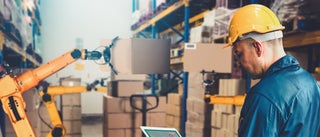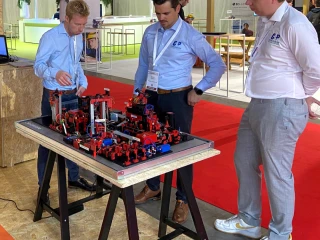
From sensors to business value
Since their inception, terms like ‘Industry 4.0’, ‘smart factory’, and ‘factory of the future’ have promised manufacturers unprecedented boosts in efficiency and revenue. More than a decade later, however, the fourth industrial revolution’s potential remains largely untapped. Why? Because most companies are using ground-breaking technology to keep doing the same things. Our holistic approach and proven framework help you break the mold to identify real value opportunities.







/two-people-in-warehouse-wearing-protective-gear-(1).webp?mode=autocrop&w=320&h=240&attachmenthistoryguid=52d002a4-d688-42d7-9fba-558b854c104c&v=&c=c4090f9ac8eacaa8f06bf9e7bea4de85b526628252af23c44b7bf0c79a79659b)
/report_01_paradigm_shift_manufacturing_mockup-media_rectangle-1080x810-(1).webp?mode=autocrop&w=320&h=240&attachmenthistoryguid=0b1ae6ec-737c-4461-ba12-8d6044bf5af4&v=&c=23a4791ff12bd41ad7d1570d6e462a850fe557703412aa8ad958de8d3af72040)

